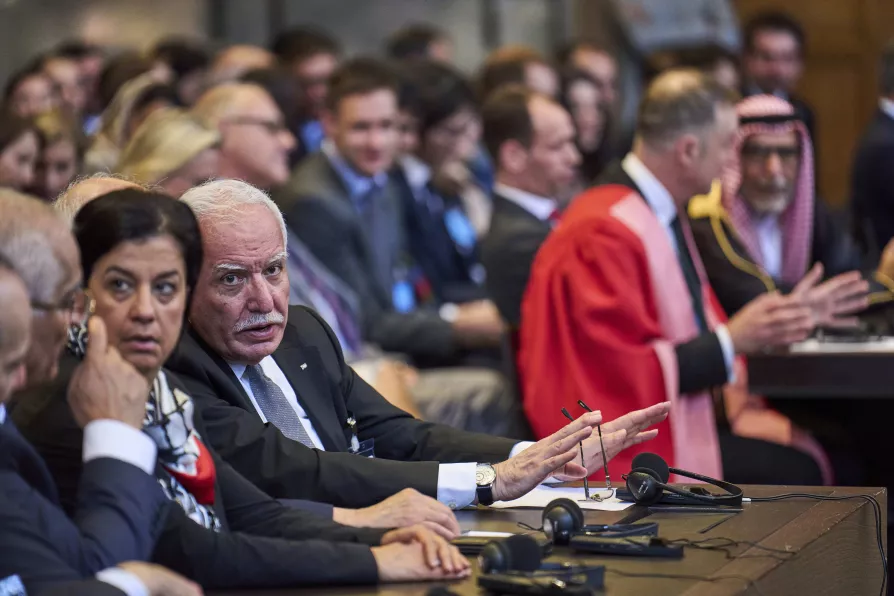Top UN court says Israel's settlement policy in the West Bank and east Jerusalem violates international law

 Palestinian foreign policy advisor Riad Malki and other members of the legal team take their seats before judges enter the International Court of Justice, or World Court, in The Hague, Netherlands, July 19, 2024
Palestinian foreign policy advisor Riad Malki and other members of the legal team take their seats before judges enter the International Court of Justice, or World Court, in The Hague, Netherlands, July 19, 2024
THE top United Nations court said that Israel’s settlement policy in the West Bank and East Jerusalem violates international law, as it delivered a non-binding advisory opinion on the legality of Israel’s 57-year occupation of lands sought for a Palestinian state.
The ruling is likely to have more effect on international opinion than it will on Israeli policies.
International Court of Justice president Nawaf Salam said the panel had found that “the transfer by Israel of settlers to the West Bank and Jerusalem as well as Israel’s maintenance of their presence is contrary to article 49 of the Fourth Geneva Convention.”
Similar stories














